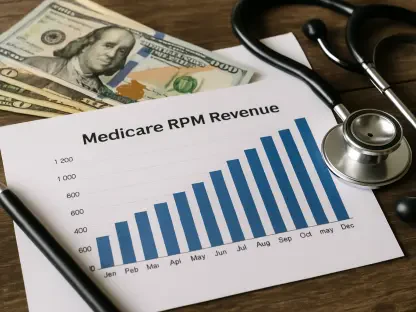In a groundbreaking legislative move, Arkansas has enacted a law that prohibits pharmacy benefit managers (PBMs) from owning or operating pharmacies within the state. This pioneering legislation, signed by Governor Sarah Huckabee Sanders, aims to combat the rising costs of prescription medications by addressing the significant control and influence PBMs hold over drug pricing and access.
Arkansas Bans PBMs from Owning Pharmacies
In a significant development, Arkansas enacted a law that restricts PBMs from owning or operating pharmacies. This innovative measure, spearheaded by a growing concern over increasing prescription medication costs, targets the dual roles PBMs play, which often present conflicts of interest. The ban is part of a broader attempt to create a fairer and more competitive pharmaceutical market by preventing PBMs from managing their own pharmacies in addition to other businesses.
The intent was clear: by eliminating these conflicts, Arkansas hopes to reduce inflated drug prices, protect independent pharmacies, and curb unseen profit margins. The legislation mirrors a growing movement among states to tackle the challenges posed by PBMs, widely criticized for driving drug prices up and squeezing independent pharmacies out of the market.
Legislative Intent and Expected Outcomes
The law’s core objective is to address the conflict of interest when PBMs manage and own pharmacies. The legislation responds to multiple allegations that PBMs exploit market power to increase drug prices and reduce competition. In a decisive move, Arkansas seeks to promote consumer interests and establish equitable drug pricing practices by eliminating these conflicts.
Experts predict this legislative move will result in a more transparent pricing model benefiting patients and local pharmacies. By severing the PBMs’ dual roles, Arkansas aims to ensure fairness and promote competition within the pharmaceutical sector.
Panel of Experts Weighs In
During the legislative process, a panel discussion was held, focusing on PBM practices and the anticipated impact of the new law. Industry experts, including those from independent pharmacies and regulatory bodies, provided insights into how the legislation could reshape the pharmaceutical landscape. They emphasized that separating PBMs’ conflicting roles would bring about a more consistent pricing model, benefiting consumers and independent pharmacy operators alike.
This panel became a pivotal moment in understanding the intricacies of PBM operations and gauging the prospective benefits of the new regulations. By sharing diverse viewpoints, the panel helped crystallize the need for such legislative measures to curb PBM excesses.
Workshops and Group Discussions
A series of workshops were conducted to outline the operational changes required by the new law. These workshops provided an opportunity for pharmacists to discuss their concerns and offer suggestions. Activities included detailed breakdowns of compliance requirements and collaborative sessions aimed at identifying best practices for independent pharmacies adjusting to the new regulations.
The workshops served as a vital forum for engaging the community and facilitating a smoother transition into the new regulatory environment. These discussions were invaluable in preparing independent pharmacies for the challenges and opportunities presented by the legislation.
Innovations and Technological Solutions
The event also highlighted new technological solutions designed to assist pharmacies in navigating the post-regulation landscape. Innovations such as enhanced drug pricing tracking systems and advanced analytics platforms were showcased, aimed at optimizing pharmacy operations under the new law.
These technological advancements promise to support pharmacies in maintaining compliance and efficiency, helping them adapt to the evolving market conditions. By embracing these solutions, pharmacies can potentially streamline their operations and better serve their customers.
Looking Ahead: Implications of Arkansas’ Law
The long-term impact of Arkansas’ legislation extends beyond state lines, with the potential to influence other states considering similar measures. Experts anticipate significant shifts in the pharmaceutical industry, promoting greater transparency, fairness, and competition. Observers will closely monitor the law’s effects on drug pricing, the viability of independent pharmacies, and overall medication accessibility for consumers.
In summary, Arkansas’ decisive action in banning PBMs from owning pharmacies marks a pivotal moment in the effort to address inflated drug prices and promote fair market practices. The legislation underscores critical issues while laying the groundwork for broader industry reform, emphasizing the need for transparency and competitive integrity. As other states consider adopting similar measures, Arkansas’ pioneering approach could signal a transformative shift in the pharmaceutical industry’s regulatory landscape.









